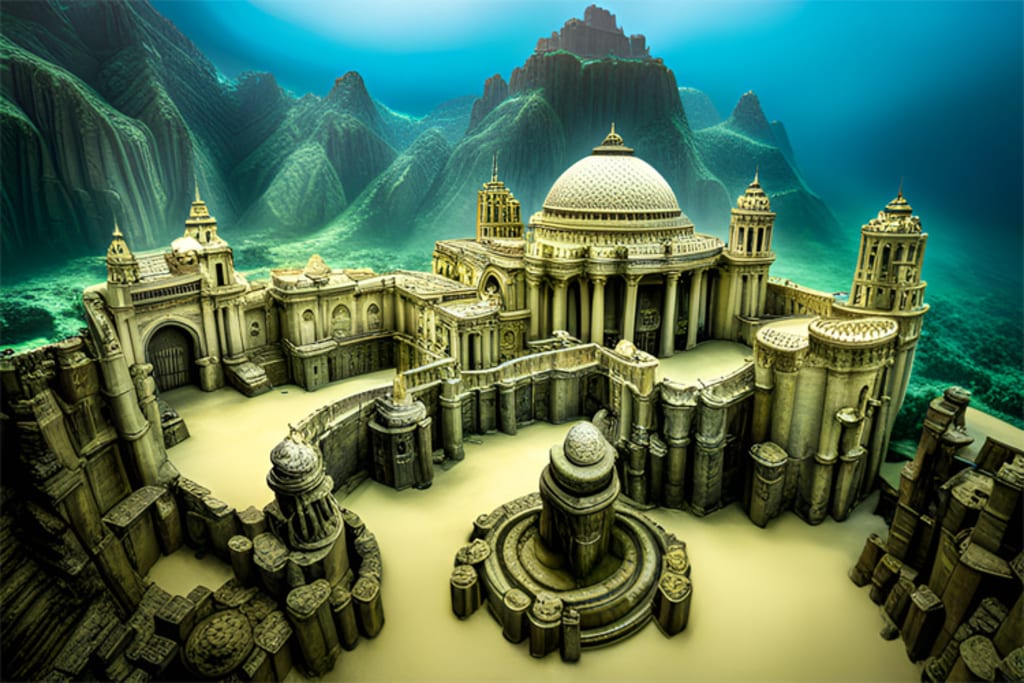The Mysterious Tale of the Lost City of Atlantis
Unveiling the Mysteries of a Lost City

Throughout human history, certain tales have transcended time and space, capturing the imagination of generations and weaving themselves into the fabric of cultural lore. One such tale is that of the Lost City of Atlantis, a legendary civilization of immense wealth, advanced technology, and an enigmatic demise that has fascinated scholars, explorers, and dreamers for centuries.
The origins of the Atlantis legend can be traced back to the ancient Greek philosopher Plato. In his dialogues "Timaeus" and "Critias," Plato introduces the story of Atlantis as recounted by his ancestor Solon, who supposedly learned it from Egyptian priests during his travels. According to this account, Atlantis was a remarkable island located beyond the Pillars of Hercules, which are believed to be the Strait of Gibraltar. The city-state, allegedly ruled by powerful kings, was an advanced society known for its exceptional architecture, engineering marvels, and abundant resources.
However, it is crucial to note that Plato's tale of Atlantis is not meant to be a historical record. Rather, it is a philosophical allegory, a thought experiment used to explore themes of power, virtue, and the inevitable cycle of rise and fall that civilizations experience. Through Atlantis, Plato delves into the concept of hubris and the consequences that befall those who become too enamored with their own achievements.
Despite its allegorical nature, the allure of Atlantis as a physical place has led to centuries of speculation and exploration. Theories about its potential location have abounded, ranging from the Mediterranean to the Caribbean, and from Antarctica to various other corners of the world. Many theories have tried to identify Atlantis with real historical events or places, such as the eruption of Thera (Santorini) or the mysterious vanishing of the Minoan civilization on Crete.
One intriguing theory places Atlantis in the region of modern-day Santorini. The volcanic eruption that devastated this island around 1600 BCE left behind a caldera, and some scholars suggest that the eruption's aftermath might have influenced Plato's description of a sinking city. The connection between the catastrophic event and the myth of Atlantis has prompted researchers to consider whether the legend could have been inspired by actual historical occurrences.
In the realm of modern exploratory efforts, underwater expeditions have aimed to uncover evidence of Atlantis's existence. The sunken city has become an enticing target for explorers equipped with advanced technology to probe the depths of the ocean. While these missions have yielded intriguing findings, no definitive proof of Atlantis's existence has been uncovered, leaving the legend to persist as an enigma.
The enduring fascination with Atlantis extends beyond academia and into popular culture. Writers, filmmakers, and artists have seized upon the allure of a lost, advanced civilization, weaving it into tales of adventure, intrigue, and mystery. Jules Verne's "20,000 Leagues Under the Sea" and H.G. Wells's "The War of the Worlds" are examples of literature that evoke the spirit of exploration and the unknown that Atlantis embodies.
In the realm of film, Disney's animated movie "Atlantis: The Lost Empire" brings the tale to life with its depiction of a daring expedition to uncover the hidden city's secrets. This cinematic interpretation showcases how the legend has evolved over time and been adapted to resonate with contemporary audiences while retaining the essence of the original myth.
Beyond entertainment, the Atlantis legend has spurred serious academic inquiry. Archaeologists, historians, and geologists continue to debate the possibilities surrounding its existence, influence, and potential connections to actual historical events. Some scholars suggest that the story might have been influenced by a combination of myths, geographical misconceptions, and philosophical ideas circulating in the ancient world.
In a broader sense, the legend of Atlantis serves as a reminder of humanity's fascination with the unknown and the allure of lost civilizations. It highlights our enduring curiosity about the mysteries of the past and our willingness to engage in speculative exploration, even when faced with limited evidence.
As time marches on, the riddle of Atlantis persists, challenging our understanding of history, mythology, and the human psyche. Whether it was a mere invention of Plato's philosophical musings, a symbolic representation of societal hubris, or a civilization lost to the annals of time, the Lost City of Atlantis remains a testament to the power of storytelling and the enduring quest to uncover the secrets of our past. Just as its fabled spires are said to have disappeared beneath the waves, the Atlantis legend continues to ripple through the currents of human curiosity and imagination.





Comments
There are no comments for this story
Be the first to respond and start the conversation.